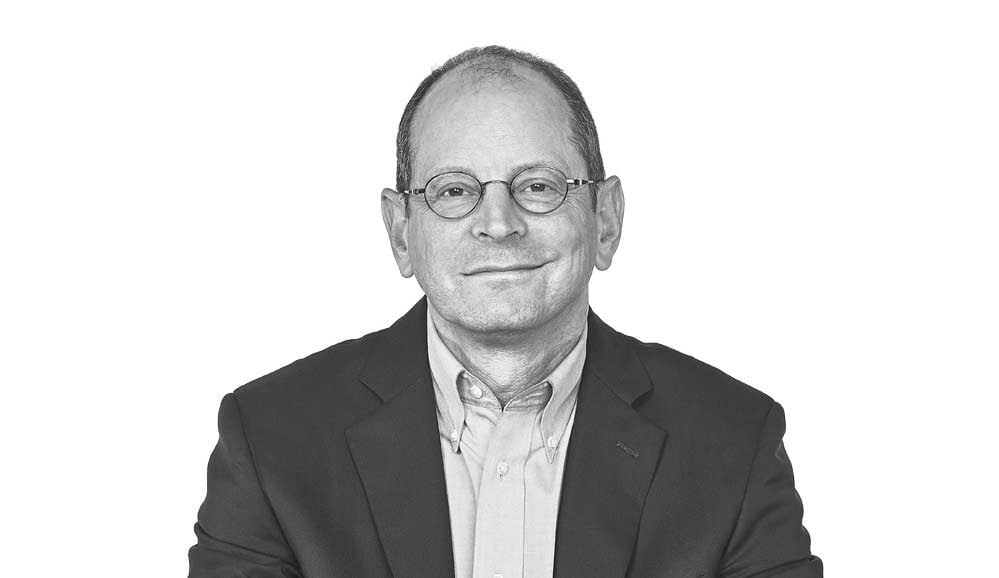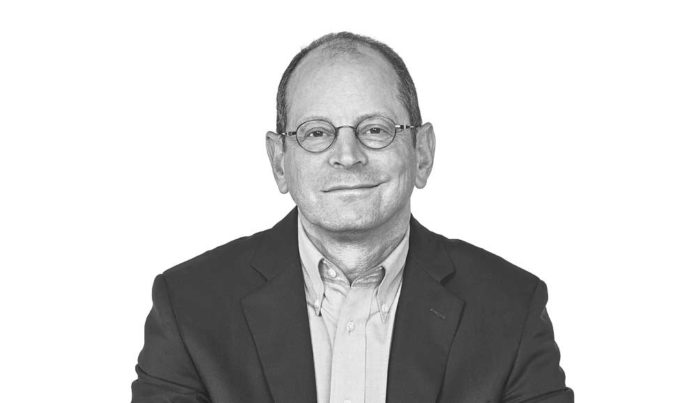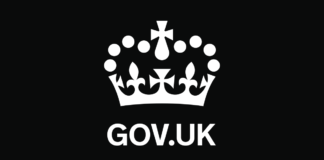
In American usage, “liberal” once connoted left-of-center politics—something that tended to baffle people familiar with the word’s actual history. But now the term has been supplanted by “progressive,” allowing those like Jonathan Rauch—a Brookings scholar who has written about Washington for years—to re-embrace its older meaning, which refers to a system built around a certain vision of tolerance rather than any particular policies about things like taxes or infrastructure.
Rauch’s newest book, The Constitution of Knowledge, is subtitled A Defense of Truth but actually serves as an argument for how to organize a decent society based on that version of liberalism. Amid a summer of Covid disinformation, we spoke with Rauch about how to navigate the tribalized world of modern America.
In daily life, people grasp what progressives do and get what conservatives do—but tend to be less clear on what liberals are about. Why does the world need liberals?
The world needs liberals because they make it possible for progressives and conservatives to occupy the same nation-state without going to war. And liberalism does that because it’s devoted to rule by rules, not by rulers. Instead of having some right-minded authority decide who’s right, who wins, or who determines the truth, you hand it over to a process. That process requires people to treat each other interchangeably: In principle, no one gets special standing. Your color, creed, nationality, class, and all the rest shouldn’t matter. What matters is: Do you have the evidence and arguments, and can you persuade others regardless of who they happen to be? Of course, that’s aspirational, but it’s unique to liberalism. And in a liberal society, we’re all going to accept the outcomes of this process, which forces us to negotiate and compromise.
Most human societies over 200,000 years have been some version of a tribe—status hierarchies where political decisions were made at the top of the food chain. Knowledge was determined by priests or princes or politburos, or something else beginning with P. That’s just how humanity operated, until the liberal revolution, which is very, very recent—we’re talking late 17th century. So we’re not even 400 years into this thing yet. So far, the accomplishments are fantastic: market economies, liberal democracies, liberal science—and the greatest of them all, a Constitution of Knowledge. I think it’s literally a species-transforming technology.
What’s the Constitution of Knowledge?
It’s the system of institutions and norms that keeps us collectively anchored to reality and allows us to settle our viewpoint disagreements civilly. And the community of individuals that adhere to the Constitution of Knowledge are what I call the reality-based community. It’s four fields—science and academia; journalism; the law; and government—that are devoted to the big task of seeking objective knowledge. Which is really, really, really—multiply as many “reallys” as you want—difficult to do, finding the needles of truth in the haystacks of wrong information. So most people, most of the time, are not part of the reality-based community. In fact, no one’s in it all of the time. There are scientists who come home from the lab and pray.
You argue that the reality-based community is under serious threat right now. From whom?
There’s one big challenge. The challenge is digital media. And it’s being exploited by two big groups who are really against the reality-based community. The first is the world of disinformation, primarily on the right: MAGA, but also QAnon, anti-vax—a bundle of alternative realities, which are energetically and effectively attacking the Constitution of Knowledge. The other big group is sometimes called cancelers, politically correct, and certain varieties of radical wokeness, who take a view that they have a direct pipeline to truth and who are using social coercion to impose it—sometimes to politicize science, sometimes to chill people, sometimes to intimidate them. Both of those are very active right now.
You don’t view these threats as equal.
I don’t. One is from outside the reality-based community, applying Russian-style disinformation tactics to American politics with extraordinary audacity and success. That’s what Donald Trump was doing with his 30,000-plus false statements—what researchers call a fire hose of falsehood. He was running “conspiracy bootstrapping”—where you say, “This conspiracy theory might be true,” and then circulate it—and another classic one, attention hijacking. That’s what he’s doing by behaving outrageously: making sure we could not think about anything else. This is a tactic that Hitler promulgated in Mein Kampf: It doesn’t matter if they ridicule us; all that matters is that they can’t stop thinking about us. I think Trump is the greatest propaganda genius since Goebbels. And he’s better than Putin.
The second problem is different because it’s emanating from inside the reality-based community—from the academic world, especially at elite universities, where a left-progressive viewpoint is simply taken for granted and where it’s possible to go your entire career without meeting a conservative in your discipline. That’s leading to blinkered and distorted science—questions that are not getting asked, biases that are not being detected. It’s damaging confidence in academia, and it’s feeding politicization as people in these disciplines begin to believe that their political points of view, which seem not to be questionable, therefore must be scientifically valid.
It’s also fueling the movement called canceling, which is the use of social coercion to isolate and intimidate people who would dissent. About two-thirds of American students now say they are reluctant to state their true political views for fear of social consequences. It’s also off campus: About 60 percent of Americans say the same thing, and a third say they’re worried about losing a job if they state their true political views. By the way, that’s true across the ideological spectrum—progressives are just as afraid, on balance, as conservatives.
Why is that?
It only seems weird until you realize that canceling, like disinformation, is a form of propaganda warfare. Both are about manipulating the information environment for political advantage. When people feel intimidated, they no longer know what other people really think—what sociologists call a “spiral of silence.” We become demoralized, unwilling to speak out. And that’s the end state that information warfare seeks to pursue, whether it’s on campus or Vladimir Putin or Donald Trump.
The common response is that complaints about progressive censorship are offered up mostly by white males who are simply unused to criticism. But another is about the appropriate role of shame. Lots of people feel ashamed for things they said about, say, gay people in the 1980s. That seems like a good development—that a byproduct of that change is new shame, and one artifact of that shame is increased social coercion.
I’m an American homosexual born in 1960. No one needs to lecture me on the power of shame. It is certainly true that there are views of which people should be ashamed, and views that deserve criticism. I often hear that what’s really happening is just that highbrow dominant classes of people are finding themselves criticized online and calling it “canceling” because they can’t take it: “Well, if you’re going to have shameful views, then you should be ashamed.”
In the Constitution of Knowledge, what do we do if someone is wrong, even grievously wrong? Here’s what we don’t do—but what was done throughout most of human history: throw them out of polite society, deprive them of making a livelihood, throw them in prison, or kill them. Because if you do those things, the price of being wrong is much too high. People become afraid of making mistakes—and because mistakes are the raw material of knowledge, we don’t learn. A no-offense society is a no-learning society. All of the most important moral advances, and innovative ideas, began looking outrageous to practically everyone. The idea that all humans are created equal, even Blacks and women? That slavery is an abomination? That homosexual love is not abhorrent? That gay couples can marry? That’s all because of social learning, which couldn’t have happened if a lot of people weren’t offended first. If people say my view on homosexuality is offensive and I should be ashamed, I’d say, “Tell me why.” Let’s have a conversation. But even that’s not what canceling is. It’s attempting to punish not the error but the person making the error. It goes after your job, organizes campaigns to hurt you, reducing your entire career to what you might have said in one tweet—characteristics that are totally off-limits in a liberal, intellectual culture.
The great innovation of the Constitution of Knowledge is that it allows everyone to make mistakes, but to make them quickly. The reason I have a vaccine that protects me from the coronavirus is not that science doesn’t make mistakes but that it sorts through them quickly. Which no other system can do. But that all depends on the ability of people to make mistakes, even terrible mistakes.
Why isn’t liberalism guilty of the same sins? Doesn’t it also impose costs for violating its precepts—for violating the Constitution of Knowledge?
The difference is that liberalism is not a particular viewpoint. It’s not a single ideology. It’s a set of social rules for how we settle disagreements. Conservatives like it when they enjoy the outcomes, and progressives like it when they enjoy the outcomes—and then hate it when they don’t. If you’re a committed liberal, then a core value, maybe the fundamental value, is pluralism. This whole ambition—to arrive at the perfect destination, the triumph of one ideology—is illiberal. Progressives shouldn’t even want that. The alternative to pluralism is purism. We see it on the right in religious fundamentalism, and we see it on the left in radical woke-ism.
You think Twitter reflects a deeper truth about our nature and our history that we’ve overlooked. What is it?
Think of Twitter as a mini-model of the civil wars and creed conflicts—things like the horrific European wars of religion of the 1500s and 1600s—that humanity basically lived with as its standard operating system until about 1700. Today we tend to assume that if you leave people to their own devices, they’ll have pleasant conversations that will be respectful and truth-seeking. That’s totally wrong. Humans are not very good at interacting in big groups, because we form tribes and allegiances and very quickly decide that the reason we’re there is to defend our tribe. We’re also much more interested in confirming our biases than in confronting them. One study found that people would pay more to avoid facing contrary political views than they would to avoid seeing the dentist.
If you take a totally unstructured environment, like Twitter, with no guardrails, people are not going to converse with each other. They’re showing off their own tribal loyalties—insulting the other tribe, engaging in one-upmanship, indulging in bias confirmation—gradually descending into tribal warfare. It took centuries of conscious work to build the Constitution of Knowledge so that we wouldn’t behave that way, to save us from ourselves. Social media is the opposite. It says that instead of rewarding a fairly systematic search for knowledge, we’re going to reward capturing eyeballs. One could have, and should have, predicted that the result would be terrible. In that sense, Twitter shows us our true selves—ourselves without the Constitution of Knowledge.
If Twitter is the war of all against all in microcosm—the pre-scientific-revolution version of humanity—the liberal version of humanity online is Wikipedia. Why did Wikipedia go right when pretty much the whole rest of the internet went wrong? Because it was structured according to the Constitution of Knowledge. We have free speech but also the discipline of facts. You’re going to need to be right—to show your homework. There’s going to be disagreement, and that, too, will be structured, by Wikipedians who have established track records. It’s got the structures and the incentives that reward people for being careful, of being factual, of showing their homework—you get rewards for that. Wikipedia has shown that with the right incentives, you can transfer a truth-seeking environment to an online world.
Wikipedia also suffers from the typical problems that plague American liberalism—particularly its concern about being too white and male.
That’s right. We have had the same problems in academia and in newsrooms. We’re coming out of this society that was strongly white-male-dominated and are figuring out how to make the transition to a different kind of society. It’s a hard problem. But one of the reasons I cheerlead for liberalism is that most systems don’t look for their mistakes. They just assume they haven’t made any. Ours is different because we’re trying. It’s hard to fix. And I’m sure in many cases we’re doing a bad job. But we are working on it.








